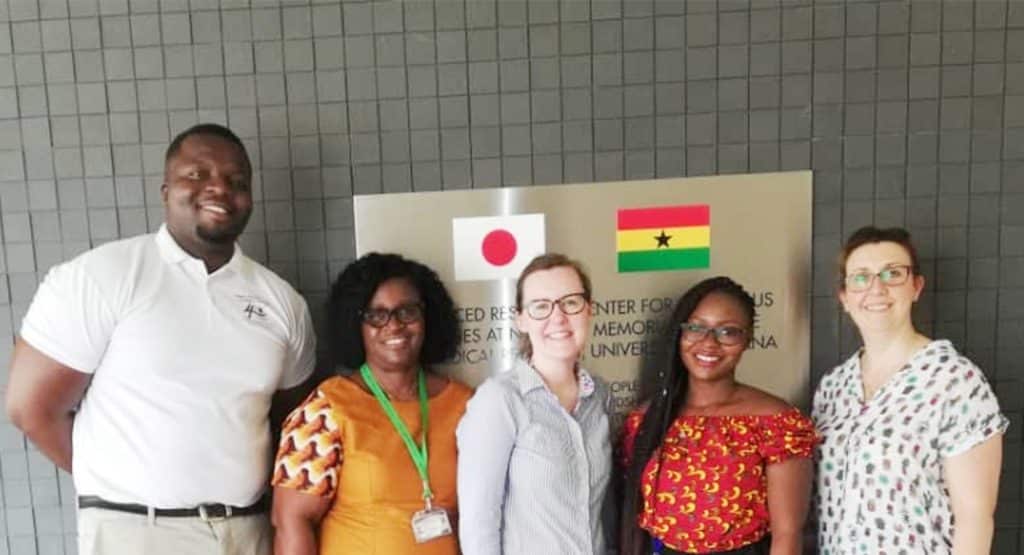22nd March 2023
A team of scientists from the Parasitology Department of the Noguchi Memorial Institute for Medical Research, University of Ghana, are conducting research on the ‘Establishment of an in-vitro high content phenotypic screening system for anti-cryptosporidial natural products-based drug discovery in Ghana’. The one-year project has an estimated funding amount of 10,000.00 pounds sterling (£) is funded by the Wellcome Centre for Anti-Infectives Research (WCAIR), University of Dundee, Scotland, UK.
As part of the global effort, this project intends to build an in-vitro phenotypic screen drug assay for investigations on the discovery of new Cryptosporidium drugs in Ghana, West Africa. Such a screening system is now absent from Ghana and possibly the entire West African region. As an apicomplexan parasitic disease, Cryptosporidiosis is known to cause stunted growth, malnutrition and deaths in school-age children in developing countries including Ghana. Studies on the discovery of new Cryptosporidium drugs will be possible in Ghana once in-vitro C. parvum parasite cultures have been successfully established. The research may help develop an effective tool compound (s) for C. parvum Vicia Villosa Lectin dye (VVL) phenotypic screening assays that completely inhibits the parasites.
The only FDA-approved medication used to treat cryptosporidiosis at the moment is nitazoxanide, which has been shown to be only 30 to 50% effective in immune-competent people and ineffective in HIV-positive people and malnourished children, highlighting an urgent unmet medical need among this comorbid patient population.
In search of new anti-cryptosporidiosis drugs, Africa has not yet been completely explored for natural products or medicinal plants. A 3-step in vitro bioassay screening system was established in prior anti-parasitic drug discovery studies with our team at NMIMR, Ghana, which helped to isolate 5 novel compounds out of 12 with anti-Plasmodium falciparum and anti-kinetoplastid activity and over 60 additional plant extracts with anti-Trypanosoma activity. This novel phenotypic-based screening method will also be applied to 60 compounds with prior anti-parasitic effectiveness against the Cryptosporidium parasites.
It will be a useful addition to the bioassays already available in our lab if this in vitro high-content phenotypic screening assay system against C. parvum is successfully established and finished at NMIMR, Ghana. Our lab will be strengthened by additional knowledge, collaboration, and capacity growth, and it will act as a center for drug discovery in Ghana.
The lead researcher, Mr. Botchie K. Senyo is a Principal Research Assistant with the Noguchi Memorial Institute for Medical Research. Co-investigators involved in this project are Prof. Irene Ayi (Associate Professor and Head of the Parasitology Department, NMIMR) and Dr. Mattie Pawlowic (Henry Dale Fellow, PI, University of Dundee).

Principal Research Assistant
Department of Parasitology, NMIMR

Head, Department of Parasitology, NMIMR

Henry Dale Fellow, PI, University of Dundee

